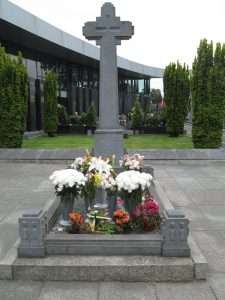Difficult centenaries
At the Béal na Bláth commemoration of the death of Michael Collins, President Michael D. Higgins warned listeners that approaching centenaries would not be easy,
“When the time comes, very soon, to commemorate those events of the early 1920s, we will need to display courage and honesty as we seek to speak the truth of the period, and in recognising that, during the War of Independence, and particularly during the Civil War, no single side had the monopoly of either atrocity or virtue.”
Acknowledging the truth of the period will demand not only recognition of the compromised nature of both sides, it will demand an acknowledgement of the secret histories.
A conversation two years ago brought an awareness of how much remains concealed. The man had been born in the summer of 1918, but even now still has the mental agility of someone years younger. He spoke that day of a family he had known who had lived on a road leading to a bog where local people had cut turf.
“When we were children they would tell stories of seeing horses going down the road at night time with big loads on their backs. The loads would be rolled up in old carpets.”
“Guns?”
“No, bodies. There was a deep pool in the bog. The IRA would weight the bodies and throw them into it.”
“Whose bodies were they? British soldiers’?”
“No. Informers.”
What does one make of such memories?
Hearing the story, there was a large amount of scepticism. Didn’t the IRA tend to leave their victims at the roadside as a warning to others? Didn’t they attach notes telling people to “beware”? What value would there have been in people simply appearing to disappear? Anyway, in a community where no-one could die without half the parish attending their funeral, how likely could an anonymous death have been?
Having read history books which described the Civil War adversaries as the “National Army” and the “Irregulars,” it was only in reading a biography of Emmet Dalton that the realisation came that the term “IRA” might have been used by both sides in the Civil War, there were pro-Treaty IRA elements as well as the anti-Treaty forces. If the IRA had disposed of bodies, they might not have been those of people who had been used by the British, they might have been the bodies of people who had supported the Irregulars.
But perhaps it was not the IRA at all, perhaps it suited the National Army to blame them for disappearances. It is when one looks at the casualty figures that the story of the disposal of bodies seems more credible. Estimates of deaths among the anti-Treaty forces vary between one thousand and three thousand. This is a huge discrepancy; anyone familiar with the close knot communities of rural Ireland will be sceptical at the idea that two thousand people could just be missing, presumed dead, unless there had been a large element of official collusion in their disappearance. What if the bodies rolled in carpets had been taken to the bog by government forces?
The honesty for which President Higgins hopes will need to explore the difficult centenaries of the secret deaths.



The issue earlier this year, and quite frankly from last year when I was at a meeting here in Tipperary about the 1916 celebration, is that Official Ireland will try to manage it out of existence. And try form into one mold when we are dealing with apples and oranges. You see what people can’t forget is that the reason why many joined the rebels is what they were hearing from their brothers home from Irish Regiments in France and elsewhere. And what they continued once released here on the island.
Think of it this way. The Irish regiments transferred almost to a man the the Free State. Yes some of the new officers were from the Rebels, but most were from the 500 acre farmer type who shot their neighbours out of trenches and ordered neighbours to be shot at dawn for the most trivial of infractions, and most were Catholic. So the traditions of the current army is more to that soldier they had at the Somme ceremony at Thiepval in July than the rebels.
Interestingly, one of the main drivers in the period was the opening of the franchise in 1918. You see if you go back to the Great Reform Act you had one section of society giving out about ‘those people’ getting the vote. But with each successive reform more and more of what the first two sets would deem undesirable. You might have a CoI and a Catholic farmer with 700 acres who in 1832 mightn’t be the best of mates but sure as shootin their grandsons were closer in mind in 1918 about the new arrivals to the voter roll.
It seems to suit certain agendas for accounts to remain unchallenged. I heard of Loyalists who wanted to hear nothing of the Catholics in the 36th (Ulster) Division because it would challenge their foundation narrative.
I cannot understand why there has not been more focus on the huge disparity in the estimates of the losses in the anti-Treaty forces.
I know a British army officer who describes Ballyseedy as a “war crime” – will it be acknowledged as such?
I suspect it will be acknowledge right enough.
OK here goes. We’re in an odd space, and have been for quite a while with historiography. These last, mmmm, 40ishy years we’ve had revisionism, or the utter fixation on document sources. But if you do that then by its nature will focus upon those who a, could write, b, structured the reports, c, made the decisions, leaving the rest of the population as a subject acted upon by the ‘writers’. So you have a judicial decision that’s eminently plausible, but operating a gigantic pretence of being ‘fair’. And this isn’t written about.
On why that exact period isn’t written about on this island, well, I suspect a tacit decision was made to park it.